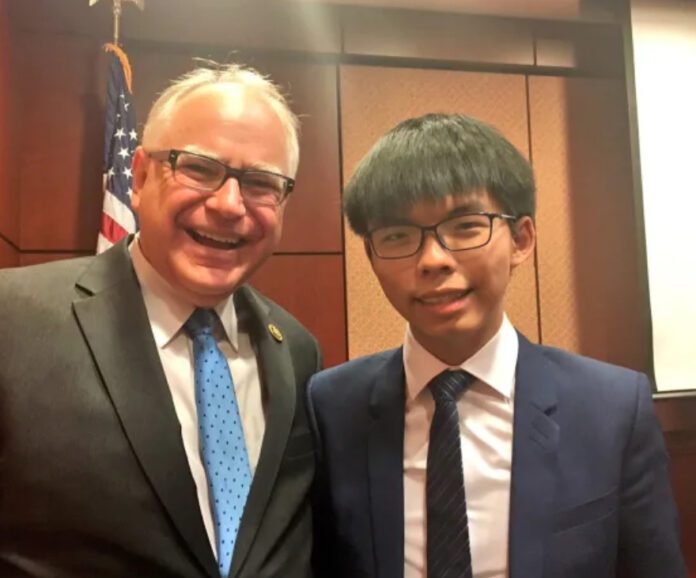Minnesota Governor Tim Walz, recently announced as Kamala Harris’ running mate for the upcoming presidential election, brings a decades-long, nuanced connection with China—an experience that offers both opportunities and challenges in the context of US-China relations.
Early Ties to China
Walz first moved to China in 1989, shortly after the Tiananmen Square massacre, as part of a Harvard University program to teach English and American history in a Chinese high school. His time in China left him with deep respect for the Chinese people, but also a critical view of the country’s authoritarian government. Reflecting on his experience, Walz noted that the Chinese people were “mistreated by their government,” expressing hope for better leadership that could unlock the nation’s potential.
Despite the accusations from his Republican opponents of being “pro-China,” Walz has a consistent record of advocating for human rights and criticizing China’s leadership. He has met with figures like the Dalai Lama and Hong Kong democracy activist Joshua Wong, showing solidarity with those oppressed by Beijing’s policies. Walz’s commitment to these issues was evident during his time in Congress, where he actively supported resolutions calling for the release of imprisoned Chinese activists.
A Nuanced Critic of China
Walz’s connection to China extends beyond his early teaching experience. He has frequently visited the country, leading student tours and deepening his understanding of Chinese culture and society. However, his criticism of China’s political system has only grown sharper over time, making him a unique figure in the US political landscape. According to Shen Dingli, a foreign policy analyst in Shanghai, Walz’s understanding of China makes him a more challenging figure for Beijing compared to those who approach the country with less nuance.
While Walz is critical of China’s human rights record, he does not advocate for an entirely adversarial relationship. He believes in collaboration where possible, particularly between two of the world’s superpowers. This approach contrasts with more hawkish US politicians who call for complete decoupling from China.
Beijing’s Perception and the Road Ahead
In China, Walz’s ties to the country have sparked interest and speculation, especially given the sensitive period during which he first visited. Some nationalist voices in China have questioned his motives, with suspicions arising on social media about his true intentions during his early years in the country.
As the Harris-Walz ticket moves forward, Walz’s background offers a potential counterbalance to the rising tide of Sinophobia in the US. However, his past experiences might offer limited leverage in shaping contemporary US-China policy, given how much the geopolitical landscape has shifted since his early days in China.
Ultimately, while Walz’s extensive experience with China could serve as a diplomatic bridge, the realities of current US-China tensions mean that his impact on policy may be constrained by broader strategic considerations. As Walz himself has acknowledged, China is a complex country, and navigating its relationship with the US requires a deep understanding of both its history and its present challenges.





